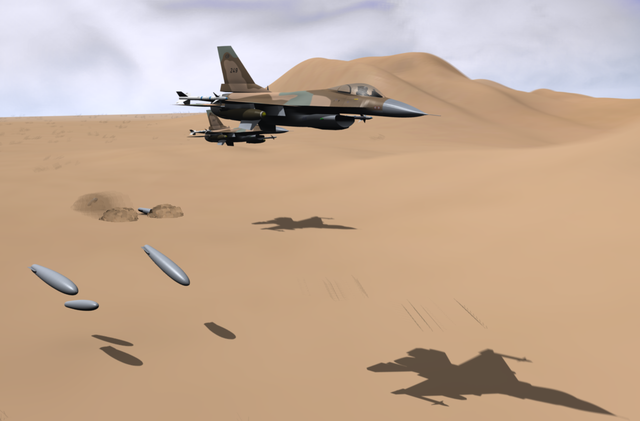The interim nuclear agreement between the P5+1 (Britain, China, France, Russia, the United States as well as Germany) and Iran is a disaster. President Obama has said that this deal dramatically reduces the likelihood of war. Ironically, it increases it. It certainly dramatically increases the likelihood that Iran will develop nuclear weapons.
The Geneva interim agreement permits Iran to retain intact all the essential elements of its nuclear weapons program:
- Continued construction of its Arak plutonium plant;
- Continued uranium enrichment to 5% (which, with 18,000 centrifuges, can enable swift enrichment to weapons-grade level, allowing Iran to become a break-out nuclear state in a matter of months);
- Its intercontinental ballistic missile (ICBM) programs (which, according to U.S. intelligence, will enable Iran to strike the U.S. itself by 2015);
- Its enriched uranium stocks (Iran being simply required to reduce them to an oxide which can be restored in weeks to weapons-grade uranium).
The interim agreement also grants Iran substantial sanctions relief totaling some $20 billion; not the $6-7 billion originally forecast by the Administration.
Thus, the P5+1 opted for an interim agreement which lets Iran off the sanctions hook. If we could not obtain a final agreement with Iran that terminates its nuclear weapons program when international sanctions are at their height, how likely are we to obtain a final agreement that accomplishes that, now that sanctions have been relaxed?
This is a regime whose leadership has stated frequently that it intends to destroy Israel. (The notion that this is a fallacy stemming from repeated mistranslations has been debunked by an authoritative study by the Jerusalem Center of Public Affairs). Indeed, during the Geneva negotiations, Ayatollah Ali Khamenei, speaking before a mass rally in which militiamen were chanting ‘Death to America,’ obscenely declared that “Zionist officials cannot be called humans …The Israeli regime is doomed to failure and annihilation.”
Worse, Tehran probably cannot be deterred from using nuclear weapons, because, as the doyen of scholars of Islam, Emeritus Professor of Near Eastern Studies at Princeton Bernard Lewis, noted years ago, “MAD, mutual assured destruction … will not work with a religious fanatic. For him, mutual assured destruction is not a deterrent, it is an inducement.” Indeed, the Islamic Republic’s founder, Ayatollah Khomeini, did declare, “We do not worship Iran, we worship Allah … I say, let this land [Iran] go up in smoke, provided Islam emerges triumphant in the rest of the world.” Destroying Israel is central to its vision of Islamic triumph.
What could have been done? Continuing and increasing sanctions alone might have induced Tehran to abandon its nuclear program. Intent on obtaining nuclear weapons and becoming a regional superpower, Tehran might have yielded nonetheless on the nuclear issue if the preservation of the regime –– and thus its ability to advance the radical Shia Islamist cause that animates it ––was endangered. We cannot be certain, but Tehran’s yielding, rather than risking a run to the bomb, was a possibility.
However, now that sanctions have been relaxed, Tehran will refuse to sign them away. When that happens, contrary to President Obama contention that the deal leaves us ‘no worse off,’ we will find that the tough sanctions that we abandoned in Geneva cannot be reinstated, let alone strengthened.
Indeed, this is the end of the sanctions regime. But even assuming that the sanctions regime does not break down, it takes time for new contracts to be halted. Even if, with hard work and good luck, certain sanctions are reinstated, it would take many months for this to occur and many more months for them to take their toll on Tehran.
In other words, at best, we have lost a year –– if not two or three –– to bring the regime around to the hard choice of abandoning its nuclear weapons program. Given Iran’s ability to become a ‘break-out’ nuclear power in a matter of mere months, we no longer have a year to spare.
Perhaps a credible threat of U.S. military action even now might suffice: the only time Iran halted its nuclear program was during 2003-5, when the U.S.-led coalition dismantled Saddam Hussein’s regime. (Recall this was also the time that Libya voluntarily relinquished its nuclear program). Clearly demonstrated U.S. willingness to use force produced results.
It will be extremely hard now for President Obama to credibly threaten military action: if he failed to honor his red line and take military action when Syria actually murdered thousands with chemical weapons, Iran is unlikely to take seriously any red line he might lay down now on building nuclear weapons. Yet he should do so without delay. But even if he does, there is now probably no way Iran can be prevented from going nuclear, except through military action.
